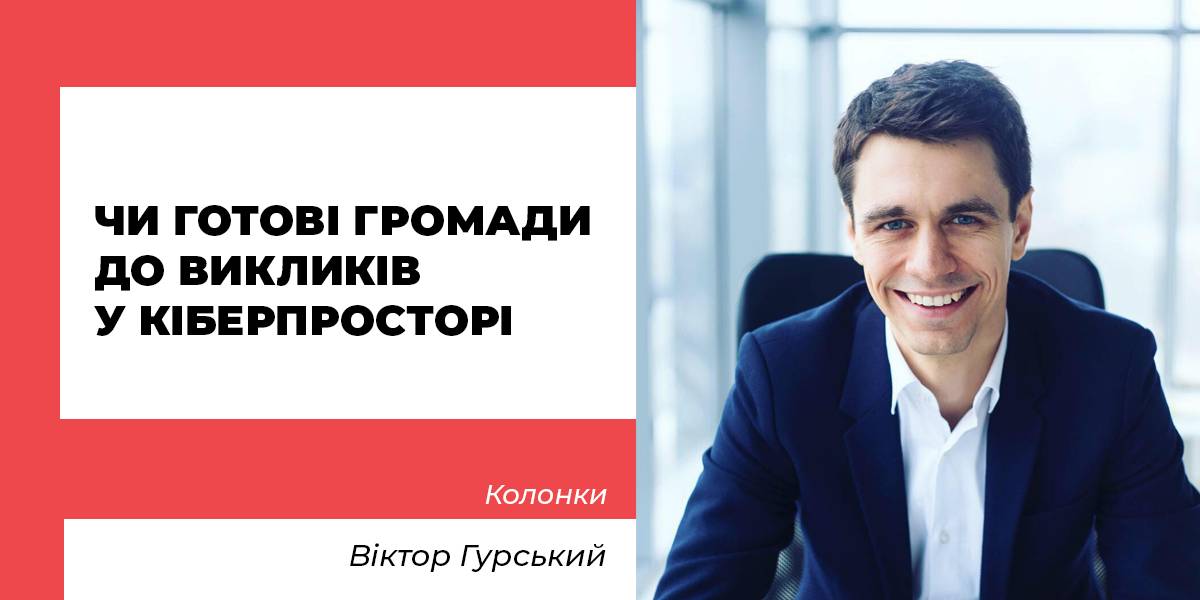Are hromadas ready for cyber challenges: research and advice
By Victor Gurskyi, Executive Director of SocialBoost, USAID DOBRE partner
Hacked website, lost municipal archive, data leakage... The list of changes in digital space can be long. Skills of safe work in cyberspace are just as important for a modern person as writing skills, needless to say about hromada employees who work with sensitive public information every day.
During the development of Dosvit platform, SocialBoost specialists interviewed local self-government officials of the DPBRE Programme partner hromadas about the habits of their work in the digital space, and created a simple mathematical model showing that every second employee is vulnerable to the loss of important information.
How to assess
A questionnaire was created and over 60 responses collected on how local self-government departments behave digitally. The issues were divided into blocks – privacy, data storage, operating system and information transfer, common habits.
Cyber habits: good and bad ones
More than 90% of respondents use an antivirus on service computers. At the same time, only 50% have a licensed operating system, and every second employee’s computer is not password protected. Employees’ responses show that most leave their workplaces and computers unattended, even if they need to leave shortly.
Most often, hromada representatives see difficulties with the licensed operating system, uniqueness of the password, and the backup of data. Let’s consider what to do about it.
Secure password is first and foremost
A password is considered to be reliable when it contains a combination of at least 8 characters with uppercase, lowercase letters, special characters (such as exclamation mark or underscore) and numbers.
We recommend that you come up with a new password every time you create a new account – e-mail or social network profile. We also suggest a small tip on how to create a difficult password that you won't forget. Remember the important or pleasant phrase and spell it out, replacing some letters with numbers and special characters. For example: Zm1nuem0krainuTogether! Or UnasGarn1iSait!
Needless to say, the paper stuck to your computer is not the best place to store your password. :)
More than 60% of those surveyed have a desktop password, with only 9% blocking their computer access before leaving.
However, 60% of hromadas understand the importance of entering their passwords privately – that is, making sure no one sees the password when entering it.
Consider your password the first point of entry into your digital space. The more secure your password is, the more difficult it is to get to your data.
Software
In our study, 40% of those surveyed use an unlicensed operating system, which has high risks.
More than 80% of respondents regularly update their operating system. With every update comes a new protection against system breakdowns.
Data backup
Data backup task is to keep copies of your data in cloud storage. It is convenient, if the main computer burns out, for example. This will save a lot of time and worries.
- Windows has a built-in backup feature. Find detailed instructions HERE.
- Use cloud storage: OneDrive, Google Disc, IBM.
- Synchronise all your devices and share documents with other employees through Dropbox, Google drive, OneDrive.
Data on the server
Having an internal server in the hromada is important in the context of storing sensitive data. Most AHs surveyed do not have internal servers. However, those hromadas with internal servers try to keep them in a decent state – allocate a separate room that is securely protected and has appropriate conditions for the server. We encourage hromadas to pay attention to this aspect as well.
Correspondence hygiene
No working day goes by without correspondence. It is important to be careful about these seemingly simple things. Phishing emails can often become a threat.
If the letter is suspicious, pay attention to the urgency of the request, correct spelling of the website, pop-ups.
Cybersecurity is a topic that is increasingly relevant to innovation-driven hromadas. After all, digital risks should be taken into account for the sustainable development of the IT sector in the AH.
Lastly, here are five simple tips to keep your data and nerves safe. Keep to yourself and share with colleagues:
- Choose strong passwords and change them regularly. Each new account = a separate password.
- Install the licensed software.
- Read more about how to recognise phishing emails and be careful.
- Make it a habit to back up your data.
- Lock your devices – only you have sensitive data.
(с) This publication was made possible due to sincere support of the American people through the United States Agency for International Development (USAID). The content is the responsibility of Global Communities and does not necessarily reflect the views of USAID or the United States Government.
The full version is available in Ukrainian – please click HERE

03 March 2026
Актуальні можливості Нового Європейського Баугаузу для України у 2026 році
Актуальні можливості Нового Європейського...
24 лютого пройшли інформаційні дні Інструменту Нового Європейського Баугаузу у 2026 році, в рамках яких анонсували...
03 March 2026
В межах Програми відновлення України III (транш В) планується реалізація 114 проєктів
В межах Програми відновлення України III (транш...
Відбулось засідання Експертної робочої групи з питань ініціювання, підготовки, супроводження та реалізації спільних з...
03 March 2026
Вісім громад пройшли до наступного етапу проєкту муніципального житла для оренди
Вісім громад пройшли до наступного етапу...
Вісім громад пройшли перший етап оцінки в рамках експериментального проєкту зі створення муніципального (соціального)...
02 March 2026
Каталоги можливостей березня: підтримка ветеранів, молоді та бізнесу
Каталоги можливостей березня: підтримка...
Після складної зими березень приносить не лише сонце та позитивні емоції, а й...
